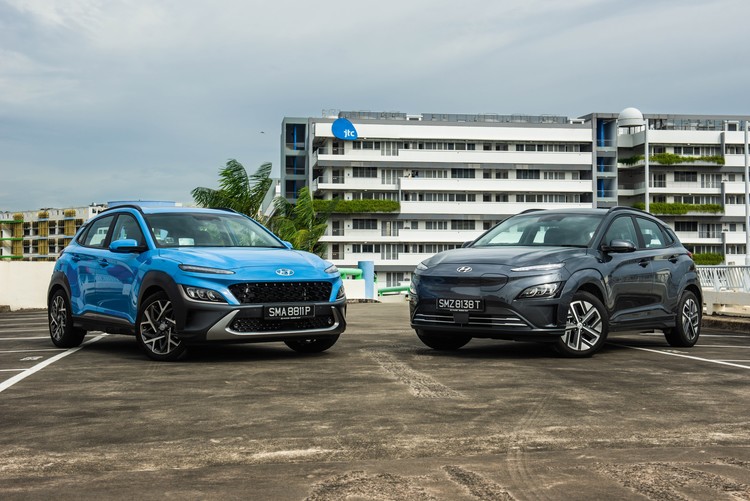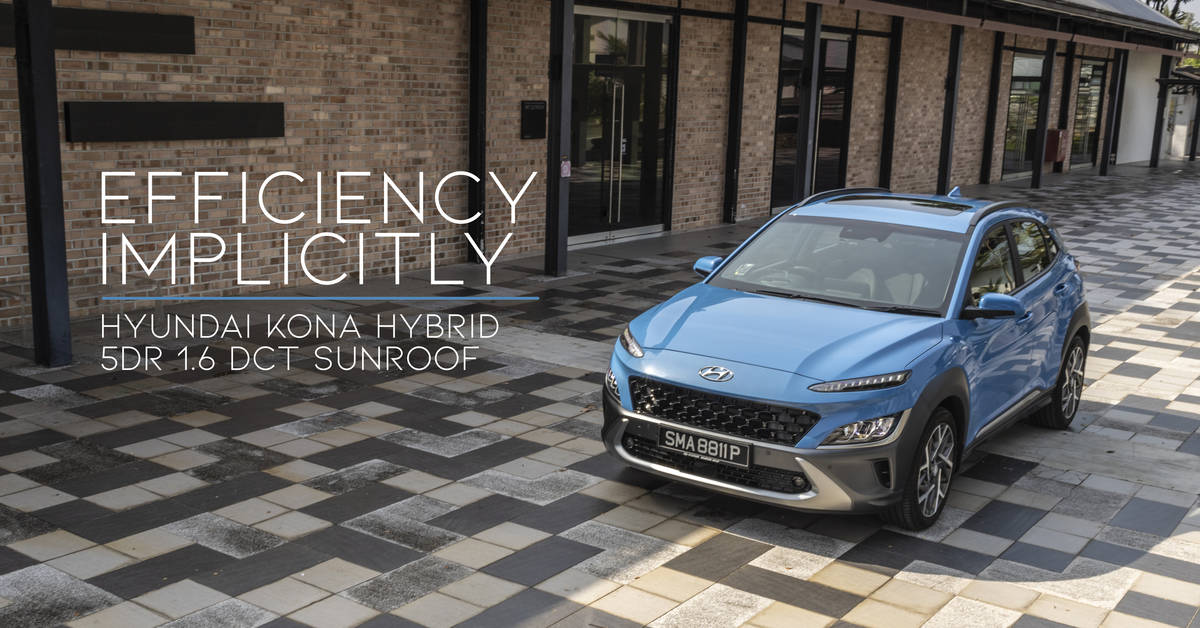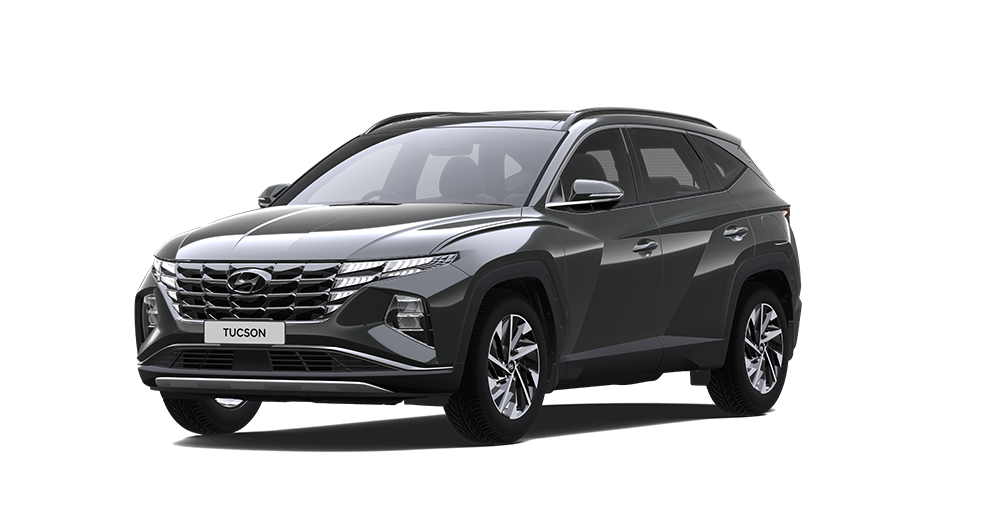With attractive rebates and better cost savings, hybrid and electric vehicles (EVs) are becoming increasingly popular in Singapore. Automakers are aware of this and are actively pushing out more models and attractive offers to entice prospective buyers.
Originally debuting in 2018, the Hyundai Kona has seen massive success, being touted as one of the best choices in the sub-compact SUV class. Today, with a new facelifted 2nd generation, Hyundai is offering two variants that promise greater enhancements revolving around bolder designs, technology and practicality. So how well does it perform on our roads?
Cleaner and more efficient powertrain systems
Similar to a pair of twins, both variants of the Hyundai Kona have a lot in common. The biggest difference lies underneath, with one powered by a hybrid powertrain, and the other being fully electric.
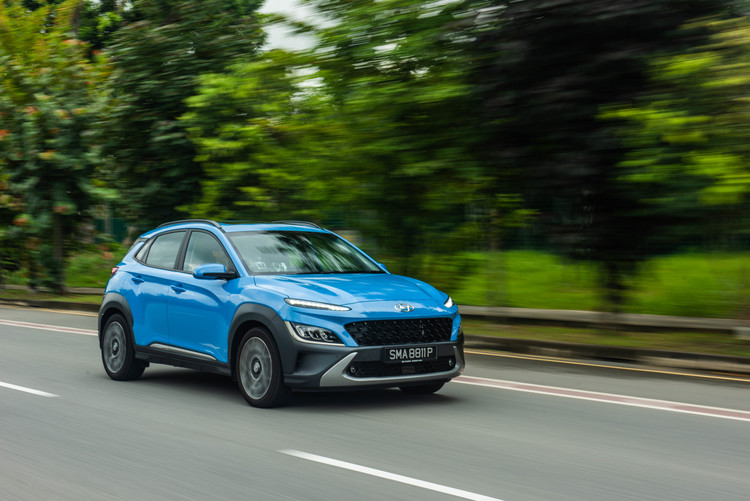
Let's begin with the Hybrid version. It features a perky 1.6-litre GDi engine that works in tandem with an electric motor to produce a combined output of 130bhp and 265Nm of torque.
Electricity for the 32kW electric motor is supplied by a 1.56 kWh battery that sits underneath the rear seats. Power is sent to the front wheels via a 6-speed dual-clutch transmission (DCT).
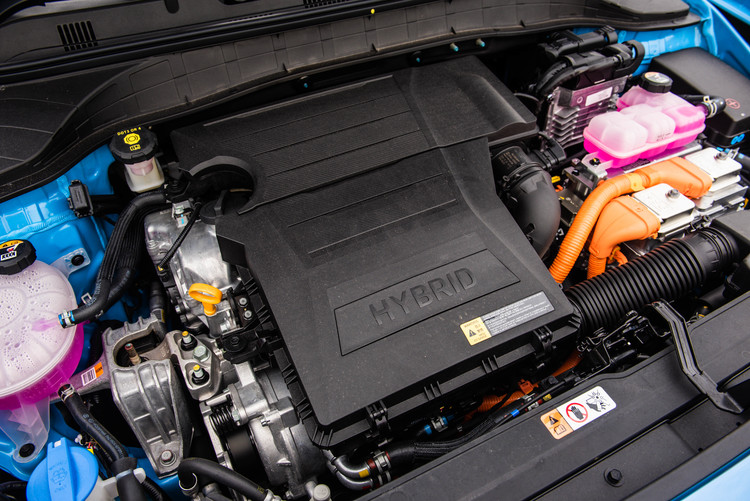
In testing, it is quite an enjoyable car to drive. The car's default mode is Eco, only changing into Sport when you shift the gear lever into manual mode. The engine and electric motor are able to switch seamlessly with hardly any delay to cater to different road conditions, allowing the car to always be in the optimal state for fuel economy.
Visibility is overall great too, and with its compact proportions, you should have no difficulty manoeuvring this around town. Hyundai has reworked the suspension system too and it definitely shows, offering a smooth ride and ironing out most bumps. When negotiating sharper corners, the car is generally well composed too, having not much body roll.
However, despite being a smooth engine, it does lack power at higher speeds. For example, when we were travelling at 60km/h and wanted to keep up with the Kona Electric which whizzed off ahead, the Hybrid took a painfully long time to increase speed, falling behind its sister car by a substantial margin.
Zero emissions fun
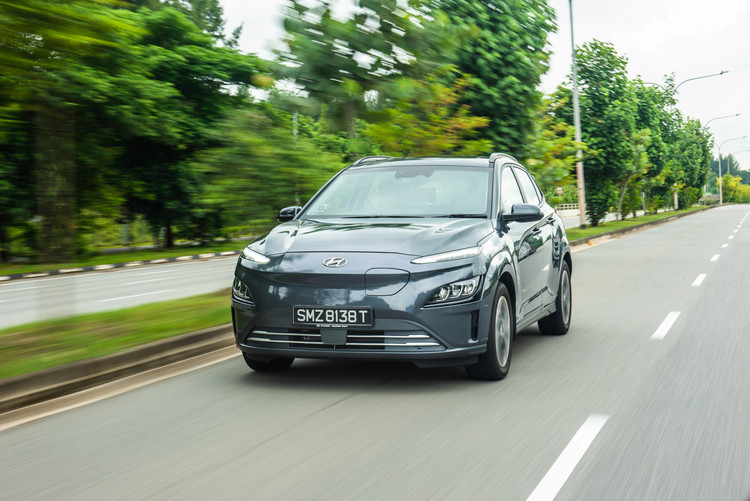
Here's where this beauty steps up. This particular unit of the Kona Electric has a battery capacity of 39.2kWh, giving you an estimated 305km of battery range. The battery is coupled up to an electric motor that produces 100kW and an attractive 295Nm of torque. Being electric, all of that torque comes instantly as well, meaning this electric model can rocket off from a standstill.
There are three driving modes on the Electric variant - Eco, Normal and Sport. In Sport mode, the car becomes even more responsive, and all of that potent power is made available to you at any time. Mash the throttle and within seconds you're at the speed limit of the road, with the car not even breaking a sweat.
Even in its other modes, regardless of what speed you are travelling at, the car is still able to pick up speed quickly. What this equates to is that manoeuvres such as overtaking other motorists on the expressway suddenly become effortless. It's simply addictive, and this electric puppy had no trouble keeping up with virtually anything on the road. Plus, you get the same levels of comfort too - a win-win!
As with most EVs, the car is able to recuperate some of its kinetic energy back into the battery via regenerative braking. However, if for some reason you decide to not utilise this feature (why are you even driving an EV then?), you can turn it off completely via the car's paddle shifters. These can also adjust how intense you prefer the regenerative braking to be, and it's honestly quite an innovative feature.
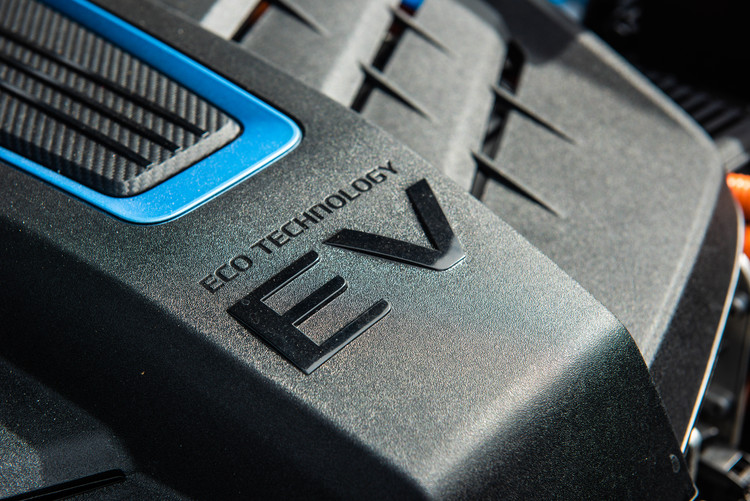
In terms of power delivery, the Kona electric easily trumps its hybrid sibling. This was confidently the faster car of the pair, and it often left its hybrid sister behind, silently disappearing into the distance.
If you're still debating on which car has a more appealing driving experience, look no further. We can confidently state that the electric model is way more fun to drive than its hybrid counterpart.
Sleek, sophisticated looks
The 2nd-generation Hyundai Kona has been given a complete makeover, receiving more than just your average vehicle facelift. As a result, you could easily trick others into thinking this is an all-new car.
Both variants share roughly the same looks, with just a few key differences distinguishing one from the other.
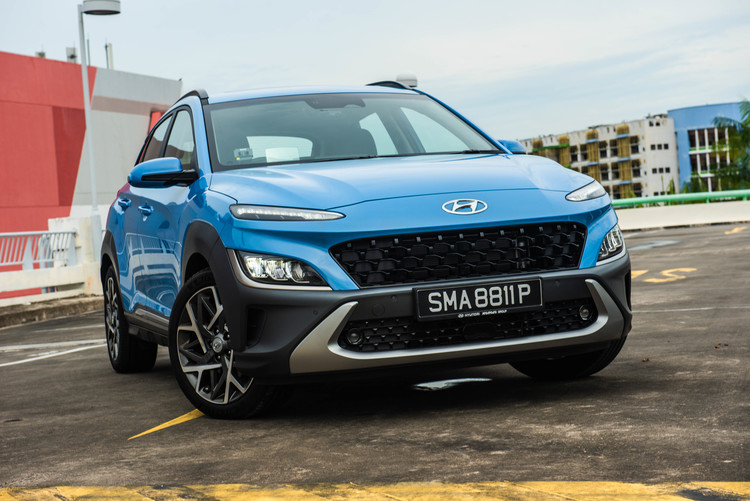
A newly sculpted front bumper gives the Kona Hybrid a sporty and muscular aesthetic, with black bumper trim pieces that surround the car highlighting its overall body shape.
Integrated into the bumper corners are vertical inlets that help improve overall airflow around the vehicle.
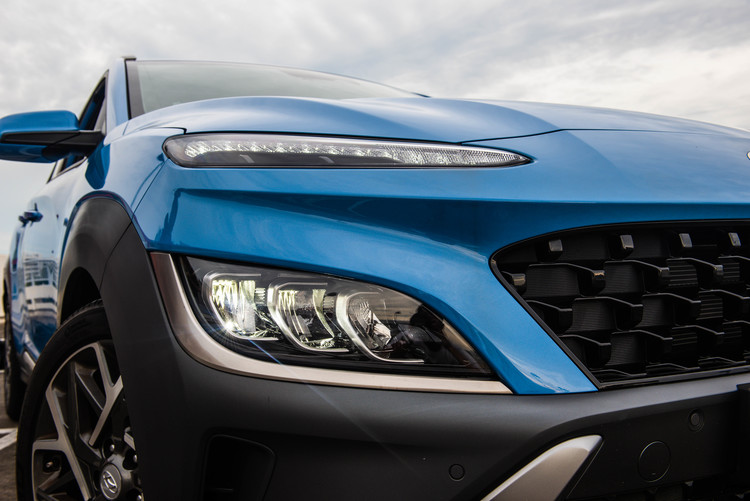
The most striking feature upfront would be the razor-thin LED daytime running headlights (DRLs). These are separated from the main headlight array, and this split design is a signature trait of the Kona.
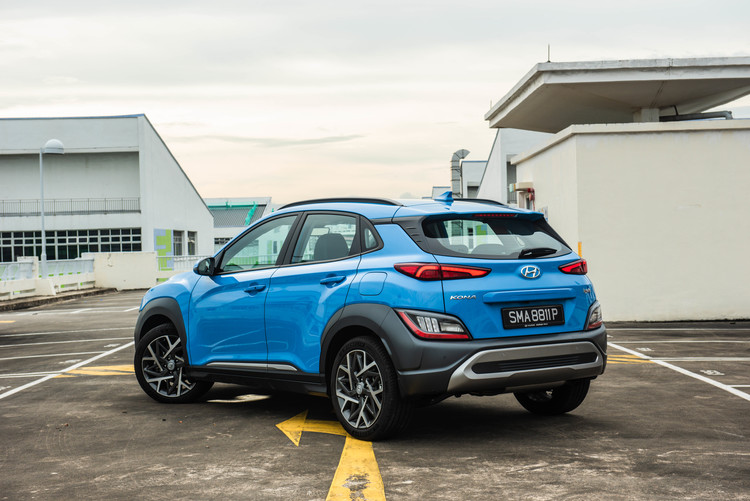
Round the back, the LED rear taillights have also been given a refresh. Similar to the front these are split too, with the indicators and reverse lights located on the lower portion of the rear combination lamps.
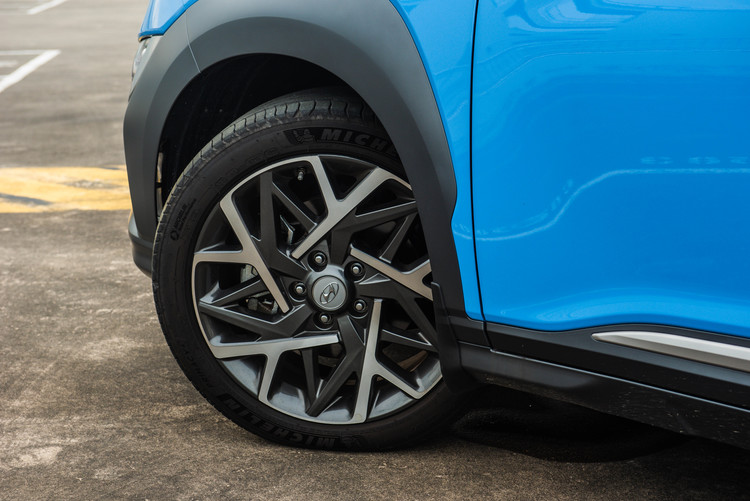
This particular trim level of the Kona Hybrid, which is the more expensive sunroof option, comes with 18-inch alloy rims as standard. You also get ventilated discs at the front, and disc brakes at the rear, which is a nice addition.
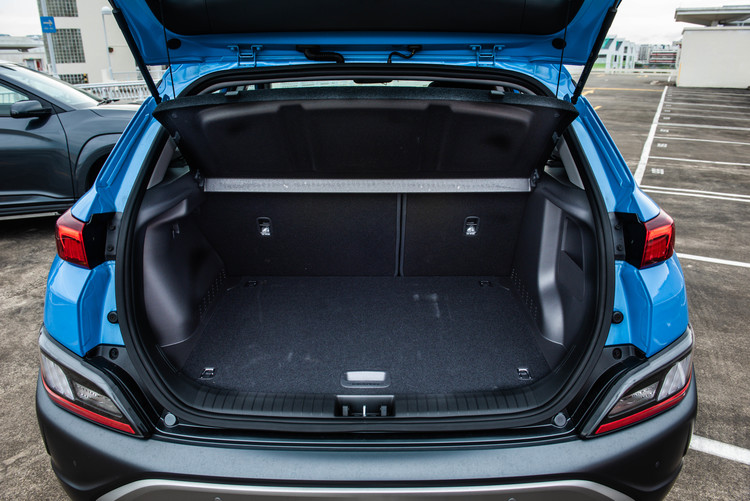
You do get a decently-sized boot that has a 361-litre capacity. It features a flat floor and wide opening that gives more convenience when loading or unloading items.
Should you want to transport bulkier or longer items, the seats can also be folded 60:40, opening up the cabin and providing a more copious 1,143-litres of space.
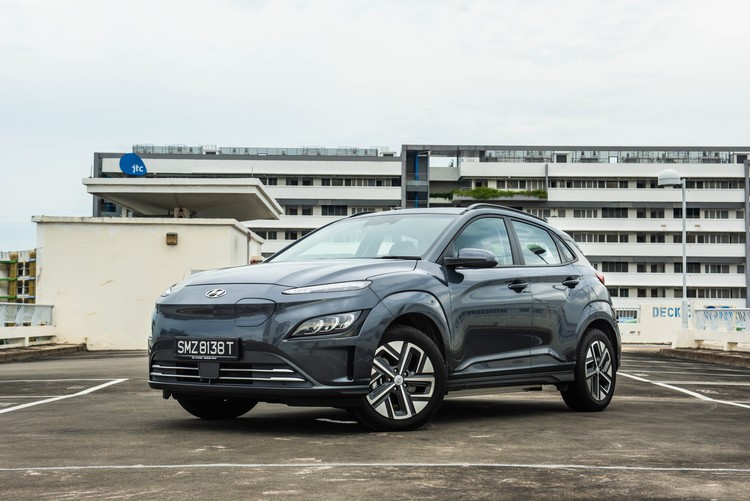
Moving over to the electric version, the designers have refrained from making the car appear too brash, opting instead for a pure and futuristic outlook that exemplifies its modern powertrain.
The front grille is removed completely, being replaced by a charging socket. This unique placement offers added convenience when recharging. The Kona Electric also shares the same split headlight design as its sibling.
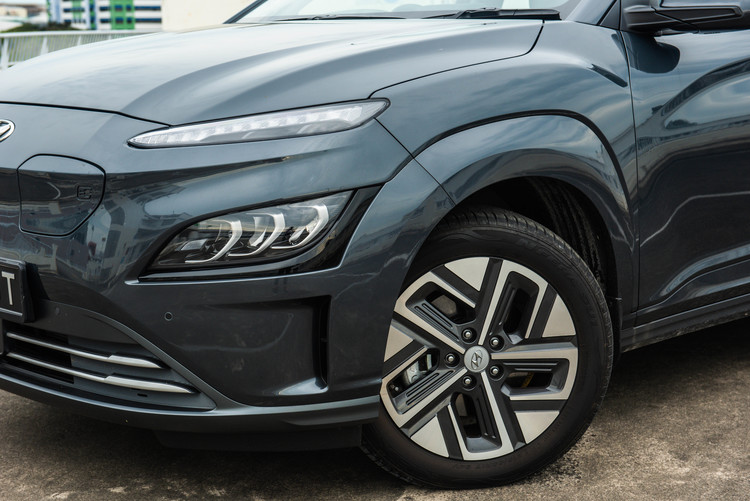
All trim levels of the Kona Electric comes with 17-inch alloy rims that feature an aerodynamic design, helping to decrease overall drag while the vehicle is moving.
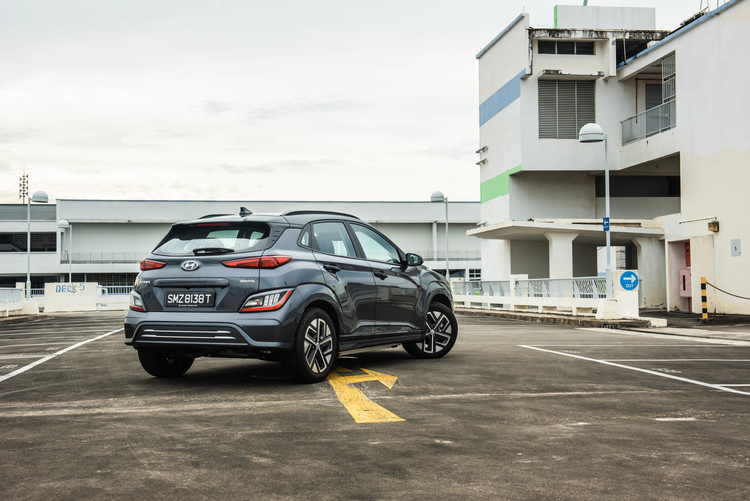
The Kona Electric has virtually the same rear design as its hybrid counterpart, with the only difference being the omission of the exhaust pipe.
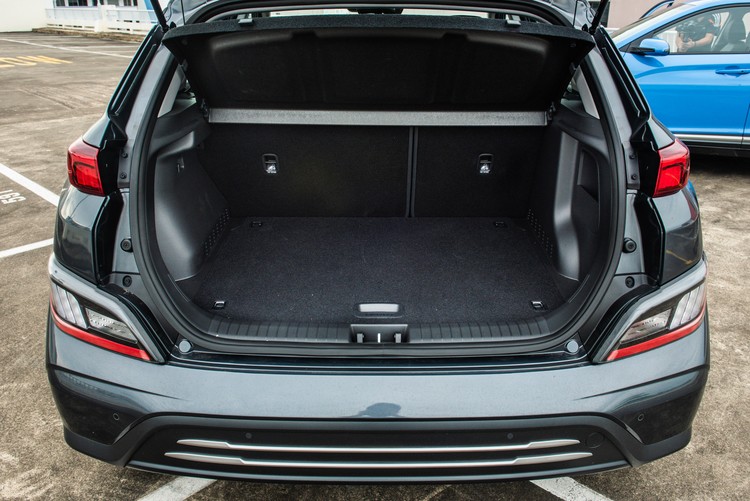
Boot space is also slightly smaller in the Electric variant, with only 332-litres available when the rear seats are folded up.
Even though they look exactly the same, the boot floor is higher in the electric vehicle, presumably to accommodate the large battery that powers the car.
Pleasant interior with technological upgrades
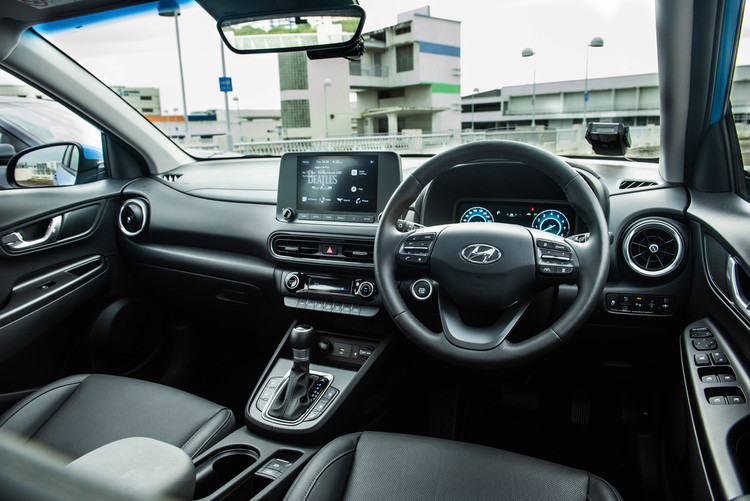
The interior of the Kona has also been redesigned, expressing a more premium and refined look than its predecessor.
The steering wheel is identical in both variants. Multi-function buttons on both sides enable the driver to toggle features such as Voice Recognition, music controls, adaptive cruise control and a host of other driver assistance features. In the Hybrid model, the steering wheel can also be heated, which can be toggled via a button beside the gear lever.
You do get paddle shifters in both models, but what use do they have in the electric version? Well, instead of selecting different gears, these paddles are used to toggle how much regenerative braking you wish to have while driving.
Both cars do share a lot in common, with the most noticeable difference being the centre console.
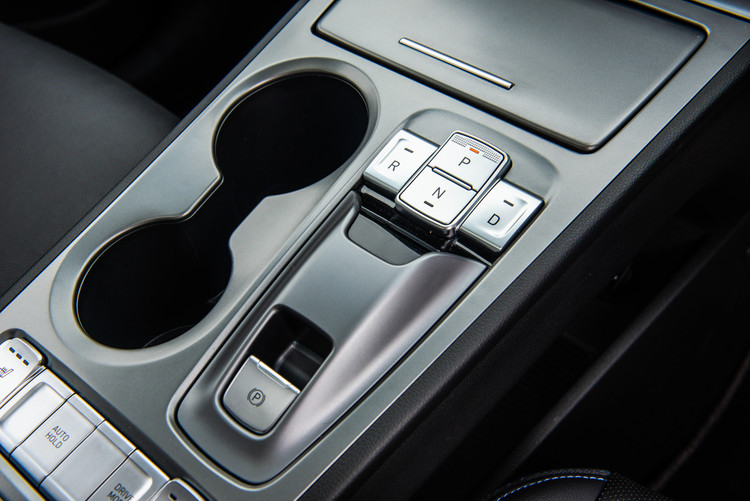
The Electric variant receives a much more futuristic-looking gear electronic gear selector as compared to its hybrid sibling, which has a traditional gear lever.
Without a rudimentary transmission, the electric's centre console also offers more space, with a large shelf underneath the gear selector. Both cars do come with wireless charging pads as well as USB and 12V ports, giving you extra versatility when topping up your devices.HuBoth variants come with the same 10.25-inch digital supervision cluster that is adapted to suit each car. It displays all relevant driving information, and can also reflect updates such as song changes from the vehicle's infotainment system.
The Hybrid model also benefits from a heads-up display (HUD), which can mirror real-time driving information in the driver's line of sight.
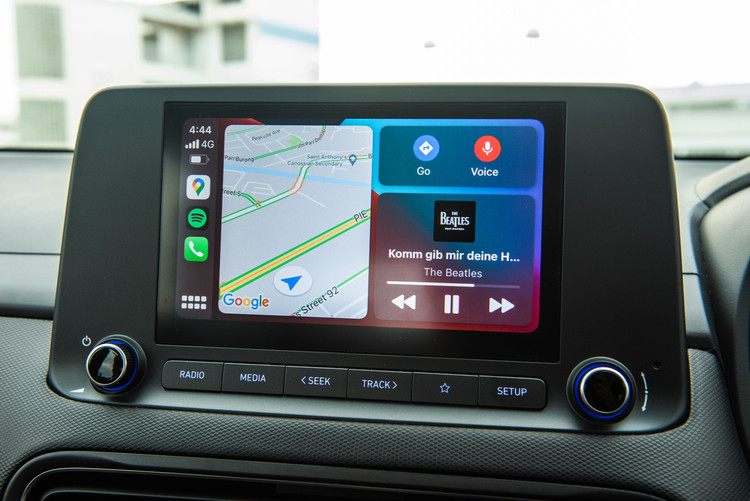
Speaking of infotainment systems, both cars are equipped with an 8-inch touchscreen infotainment system. The best part is it comes with wireless Apple CarPlay and Android Auto functionality, which is a premium most other cars don't have at the Kona's price range.
Connecting to either system is a breeze, and apps like Google Maps and Spotify work flawlessly. There's even more to love, as the car also supports voice recognition software such as Google Assistant and Siri. In testing, these work well and we were able to call others without lifting our hands off the steering wheel. Such a responsive and easy-to-use system is definitely a plus point for this car.
Even if you decide not to use these, the native Bluetooth system works just as well, and you are still able to stream music effortlessly while driving.
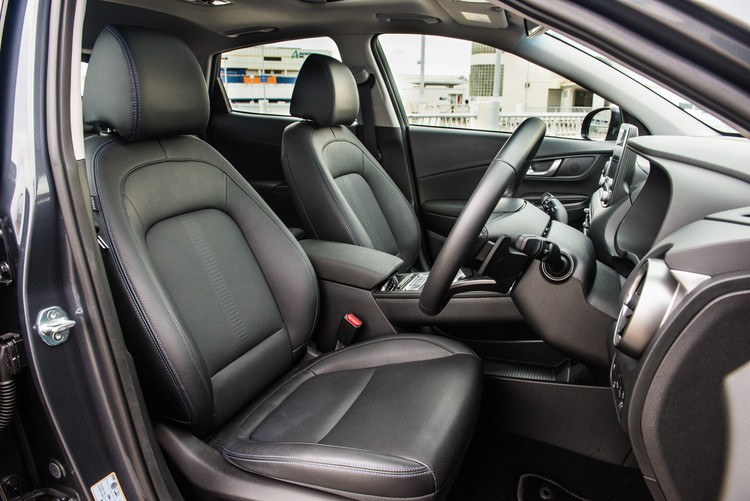
The similarities continue with the leather seats, which are identical on both models. Both front seats are electronically adjustable and come equipped with heating and ventilating functions, which is a lifesaver on both humid or rainy days.
The seats offer decent levels of comfort but can be slightly uncomfortable if you're on the road for long hours.
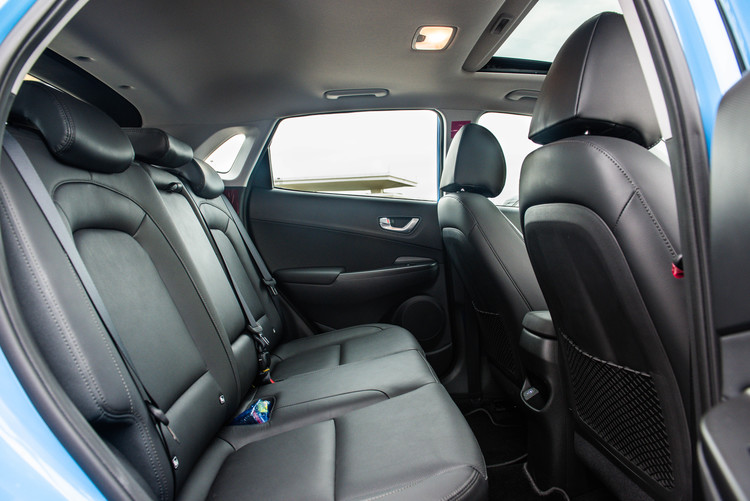
Rear legroom and headroom are great, with adequate room for taller individuals. You can easily transport three adults in the back without them complaining. A USB port can be found on the centre console, providing rear passengers with the option to charge their mobile devices.
Opting for the more expensive version of either model would grant you an additional sunroof. It's not particularly big, but it's sufficient enough to allow more light in, making the cabin feel airier.
Enhanced safety features
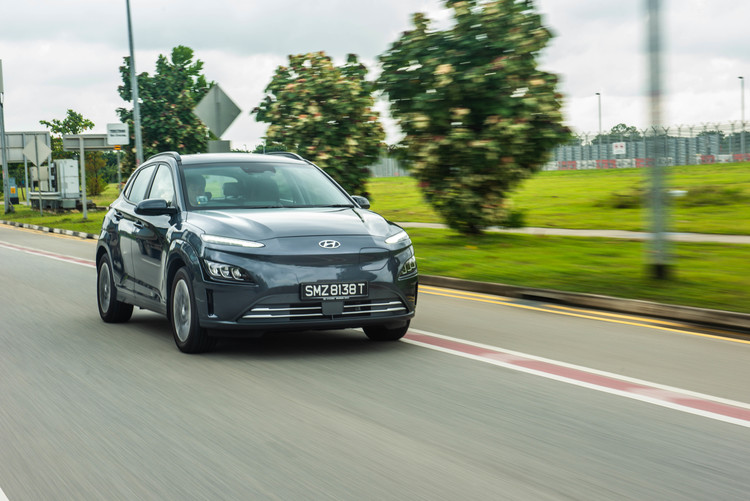
The Kona comes included with the marque's state-of-the-art safety package, dubbed Hyundai SmartSense. You will get an abundance of safety features, including:
- • Blind-spot Collision-avoidance Assist (BCA)
- • Driver Attention Warning (DAW)
- • Forward Collision-Avoidance Assist (FCA)
- • Lane Following Assist (LFA)
- • Lane Keeping Assist (LKA)
- • Leading Vehicle Departure Alers (LVDA)
- • Rear Cross-traffic Collision-Avoidance Assist (RCCA)
- • Rear Seat Alert (RSA)
- • Safe Exit Warning (SEW)
- • Smart Cruise Control (SCC)
Some of these features such as the Smart Cruise Control and Lane Following Assist are very intuitive to use and can be activated with a few buttons on the right side of the steering wheel. This effectively enables the car to steer itself on expressways, only needing additional human assistance when negotiating sharper turns.
Best of all, these safety features are not intrusive while driving, and they do not distract you from the overall driving experience, unlike some of the safety systems found on other vehicles on the market.
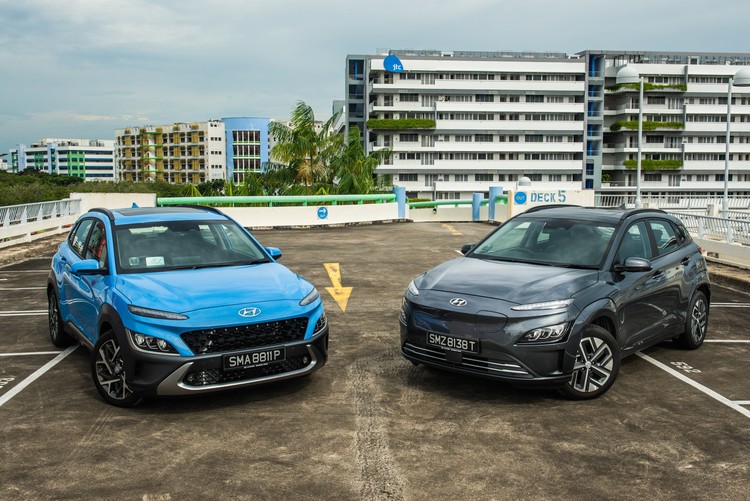
It's not often that you come across a vehicle model that offers both hybrid and electric platforms. Furthermore, Hyundai has accomplished that while maintaining a visually similar outlook, with the main difference boiling down to the model's powertrain.
Find out more about the new KONA Electric and the new KONA Hybrid.
